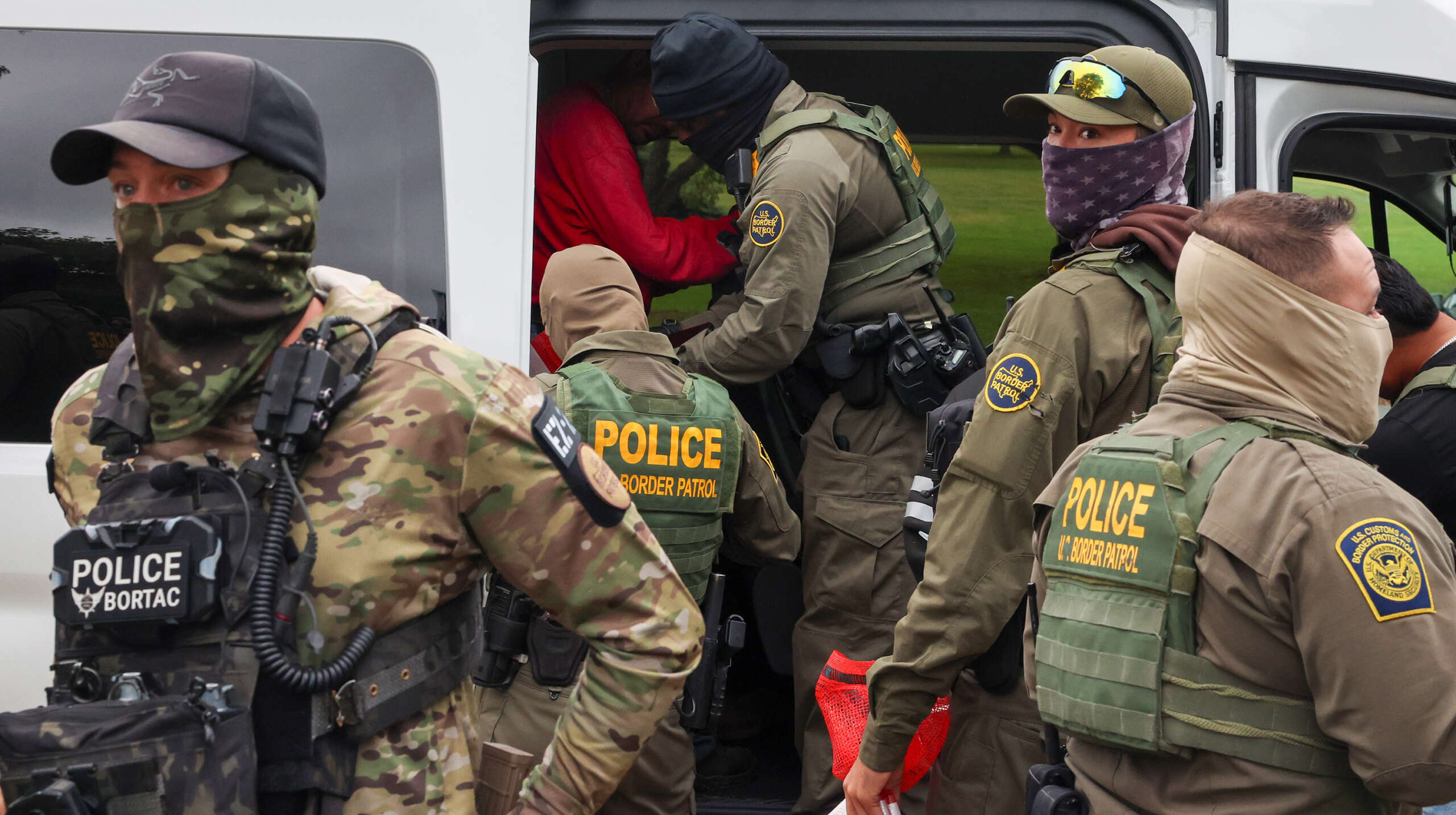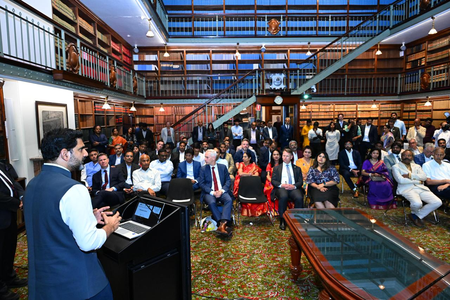Copyright truthout

Since September, Chicago has been an epicenter of the Trump administration’s nativist anti-immigration push as well as some of the fiercest resistance to it. On a daily basis, we’ve seen reports of ICE snatching people off the streets, as well as locals responding with neighborhood patrols, de-arrests, and communities taking on tear gas in standoffs against the government. For the last six weeks, Chicago and the surrounding suburbs have seen over 1,000 people taken by ICE in unmarked vans or disappeared in the middle of the night. In defiance, Chicago’s vibrant immigrant community and organizers expanded legal services and training, pushed to cancel harmful surveillance companies like Flock’s license plate reader technology, and formed coalitions to rapidly respond to ICE. Everywhere in Chicago, I’ve met people who spotted ICE and took action. A former roommate, my cab driver, a sibling’s coworker, and family friends all reported seeing the Department of Homeland Security (DHS) lurking in store parking lots, at courts, and even crashing cars on the highway. This isn’t particularly surprising. Like many in Chicago, I am Mexican American. Our people are intimately familiar with forced disappearances, often committed and sanctioned by government security forces. For centuries, our region has seen kidnapping and forced displacements driven by slave trading, extractive industries, anti-union attacks, drug wars demanded by the economics of the American palette, and more. Still, knowing this history left me mentally unprepared for the reality of seeing ICE agents detain and disappear my neighbor, a Venezuelan asylum seeker whom I will refer to using the pseudonym Francisco, right in front of me. I also wasn’t ready to have Francisco’s kidnapping stuck in my mind, replaying for weeks, or for the spring of emotions that would emerge after ICE took him. Knowledge of our shared heritage can’t intellectualize away or displace the sense of vulnerability I feel, with a full understanding that nothing in my life separates me from Francisco except a few accidents of history and the luck of the draw. The disappearance of a person by security forces is a grave injustice that actively denies their very existence. And further still, there is a deep psychological wound inflicted on those who bear witness to these disappearances. When ICE agents detained Francisco about a month ago, they ripped him out of his car, handcuffed him and sped off, leaving his distraught wife in the middle of the street. Most traffic stops aren’t over in five minutes but, then again, most traffic stops aren’t pretexts to vanish a person from their community. These interactions are surely brutally rapid by design, both to disorient the person being detained and to prevent bystander intervention. What was left in me as a witness of the abduction was a gulf of sadness wider than my anger, both for my community and for what was being done in our name as Americans. The masked agents I saw didn’t stick around. They seemed spooked when community members came out of their shops and attempted to document their actions, a reminder that fascists are always vulnerable to collective action. Security forces understand that their actions are largely unpopular regardless of their state-sponsored impunity. Across the city, we have seen many examples of neighbors pushing ICE out of their neighborhoods, which combats so-called “collateral” arrests, where ICE arrests and detains anyone it finds in an area. “Did I really see that?”I thought to myself for days. The manner in which Francisco was taken, and the strangeness of seeing an abduction in broad daylight, was destabilizing and even made me question my experience.We should resist this temptation.The reality is that these actions by our government are meant to damage our psyche and gaslight us into compliance. We should insist on telling the truth about what’s happening when our government would rather treat people as invisible in ICE prisons. To ground myself, I’ve been remembering how political theory shapes my praxis. Latin America has a rich tradition of accompaniment, of practicing solidarity with the poor and the oppressed by walking alongside them in struggle as an act of religious devotion. In fact, liberation theology emerged from Latin America with many religious leaders assisting their congregations in supporting migrants or standing with the families of the desaparecidos — the forcibly disappeared. I am similarly guided by my own religious beliefs: As a Muslim abolitionist, I have long believed in a religious obligation to free people from all forms of incarceration as a practice of faith. The Quran speaks of the requirements to free people from bondage. The second chapter, Surah Al-Baqarah, reminds us that, “righteousness is [in] one who believes in God, the Last Day, the angels, the Book, and the prophets and gives wealth, in spite of love for it, to relatives, orphans, the needy, the traveler, those who ask [for help], and for freeing slaves.” When I see injustices like ICE ripping apart families, it seems quite clear to me what our own obligations become. Several weeks ago, I met with Francisco’s support network in a small church basement. With the help of comrades, we were able to track down and contact his family. Of course, they were skeptical of us initially but, after some sharing of our own life stories, they invited us to the church to talk at length. This work always begins a bit clumsily and trust is slow to earn but once we began the work of building a campaign of legal defense, advocacy, and fundraising, his supporters seemed to open up to us. Nearly everyone involved in this effort is a woman: the work of finding missing family members, like many other forms of labor for incarcerated people, is largely carried by women. This is driven in large part by patriarchy and gender roles that place the burden of domestic labor on women. It is also true that women, especially poor women, are disappearing at alarming rates in parts of Latin America, especially at the U.S./Mexico border. However, gender-based violence affects us all and all of us, especially those who benefit from patriarchy and want to resist ICE and other forms of policing, must take on roles in the unseen but critical work of behind-the-scenes support for its victims. As people living in the United States, we have an additional responsibility to support our neighbors who are facing repression and thrown into prisons for seeking a better life here. After all, seeking asylum is a basic human right, and our immense privilege is built on the exploitation of our Latine neighbors in the Global Majority. When I think about my Latine identity, I recall one of my earliest political memories — seeing the music video for “Invalid Litter Dept” by the post-hardcore band At the Drive-In. The video showed in a brutally honest depiction how “free-trade agreements” have allowed American garment companies to put tariff-free factories in Mexican shanty towns and wash their hands of the femicide happening to its workers at their maquiladoras. Two decades later, I find myself reflecting on shared identity and what it means to support families like Francisco’s who are leaving Venezuela, a country crippled by economic sanctions placed on it on behalf of U.S. oil companies. As someone on the other side of this immense wealth accumulation, I feel personally drawn to support people fleeing economic devastation who end up in a cruel and punitive system that further exploits them. It’s been an emotional couple of weeks. Watching my neighbor get kidnapped in broad daylight left me with a confusing mix of emotions: depression, anxiety, helplessness, as well as wanting to keep the fire of liberation alive. Watching a forced disappearance also left me extremely despondent. Above all, I feel almost too sad to be angry and almost too sad to do anything about it. Almost.



